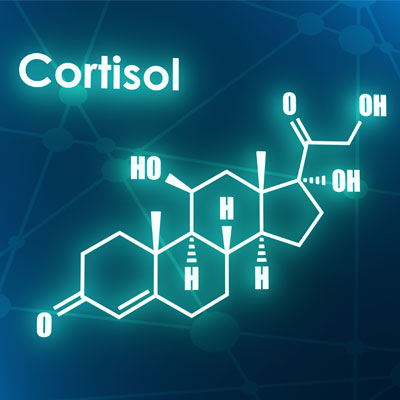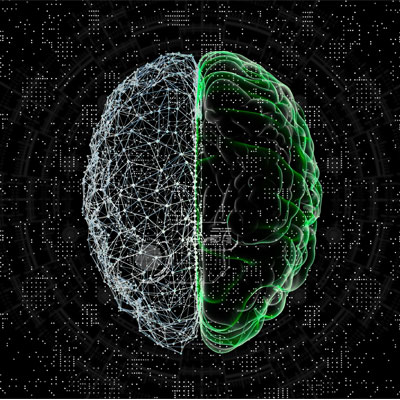Contents
- How Exercise Helps Balance Hormones
- Sleep More and Balance Hormones
- Reduce Stress and Balance Hormones
- Eat Fat to Lose Fat and Balance Hormones
- Say No to Sugar and Yes to Hormonal Balance
- Intermittent Fasting, Weight Loss, and Hormonal Balance
- Protein Consumption and Hormone Balance
- Drink Green Tea to Balance Hormones
- Avoid Overeating to Balance Hormones
- Stop Smoking and Reduce Alcohol for Hormonal Balance
- Herbs That Help Balance Hormones
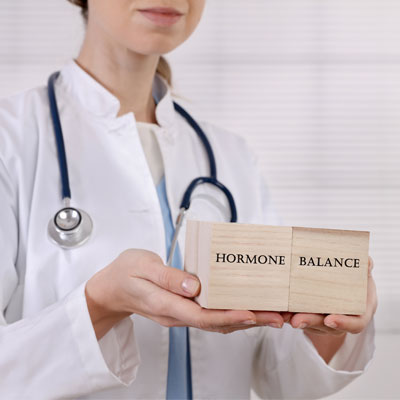
You may be wondering how long to balance hormones naturally if you incorporate these changes into your daily life. There is no way to put a timetable on when you might see some changes. Some people notice an improvement after making only one change while others can do everything on our list and see no difference at all. The hormones involved, their level of deficiency, and how your body handles the fluctuations can all affect natural methods of hormone balancing.
Hormonal decline is natural with age. Testosterone, human growth hormone, progesterone, estrogen, DHEA, and DHT (dihydrotestosterone) are just some of the hormones that change.
Not all hormones decrease production. Some hormones, such as DHT, often increase as you get older. In either case – rise or fall – hormonal imbalance can create problems for your health and well-being.
If you are not yet at the point where you need HRT, then trying any of the items in the list below may help improve your hormone functions.
Top 11 ways for balancing hormones naturally:
- Exercise
- Sleep
- Reduce stress
- Eat fat
- Avoid sugar
- Weight loss and intermittent fasting
- Eat protein
- Drink green tea
- Avoid overeating
- Stop smoking and reduce alcohol intake
- Try herbs
By learning how to balance hormones naturally at a younger age, many adults may avoid hormonal decline symptoms. The sooner in your life you incorporate these changes, the better.
How Exercise Helps Balance Hormones
Trusted sourceByrdieBalance Your Hormones With ExerciseGo to sourceRegular exercise is crucial for maintaining hormone balance and good health. You can use specific types of exercise to balance hormones naturally. However, be forewarned – the wrong types of exercise can further decrease some hormone levels. Extended cardio or aerobic sessions such as long-distance running can increase cortisol and lower HGH and testosterone levels.
When looking at exercise for how to balance hormones naturally, stick with high-intensity interval training (HIIT) for a maximum of 30 minutes. When engaging in resistance training, focus on exercises that manipulate multiple, large muscle groups at the same time. Hormone secretion increases during the hour following exercise.
One of the reasons why the right kind of exercise is crucial is to increase insulin sensitivity and reduce insulin blood levels. The right amount of insulin helps the body’s cells take in and utilize blood sugar from the bloodstream. Too much insulin can inhibit glucose uptake by decreasing insulin sensitivity. Excess insulin interferes with HGH and testosterone functions.
A sedentary lifestyle can increase the decline in hormone levels. Even a slight change can provide immense benefits. Engaging in a combination of weight-bearing and HIIT exercise is best for balancing hormone levels.
Proper exercise can significantly increase daytime hormone secretion, improve insulin sensitivity, and balance hormone levels.
Sleep More and Balance Hormones
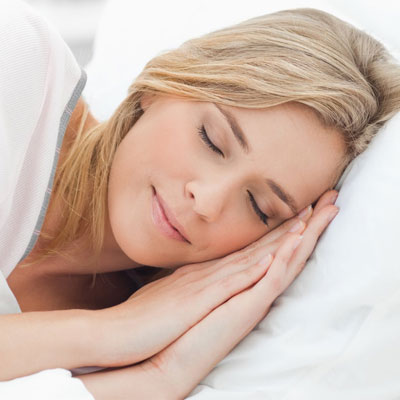
Lack of adequate sleep can throw leptin, insulin, ghrelin, testosterone, cortisol, and growth hormone levels out of balance. When we look at how to balance hormones naturally, we have to remember that many of these hormones influence one another. One deficient hormone can have a spiraling effect on the body.
A side effect to not getting enough sleep is increased cortisol which stimulates ghrelin, the hunger hormone. That is why you tend to eat more sugary foods to increase energy. The result – weight gain. More on that effect below.
Lack of sleep decreases crucial hormone levels, causing an increase in cortisol and ghrelin which can lead to weight gain.
Reduce Stress and Balance Hormones
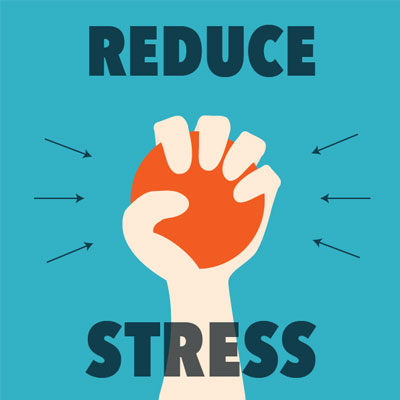
Cortisol is antagonistic towards testosterone and HGH. When cortisol levels are high, the other two hormones will naturally decline. One of the best ways to balance hormones naturally fast is to reduce stress.
Obesity and more frequent illness are natural offshoots of having too much stress in your life. Why? Both HGH and testosterone influence your metabolism, helping you to convert and burn food more efficiently.
High cortisol and low HGH levels also interfere with the body’s immune system, reducing your ability to fight off germs and viruses.
If you are wondering how to balance hormones naturally, try to reduce stress through some of the following ways:
- Yoga
- Meditation
- Getting a massage
- Taking a walk
- Reading
- Listening to music
- Deep breathing exercises
- Acupuncture
- Spending time outdoors
- Exercise
It is virtually impossible to balance hormones if your stress levels are high. Reduce stress to improve hormonal balance.
Eat Fat to Lose Fat and Balance Hormones

If you find yourself asking how do I balance hormones naturally, increase your consumption of the following foods:
- Avocados
- Nuts
- Extra virgin olive oil
- Extra virgin coconut oil
- Grassfed butter
- Wild-caught salmon
Anyone wanting to know how to balance hormones naturally would do best to incorporate these foods into their daily diet. Short, medium, and long-chain fatty acids not only help balance hormone levels, but they serve as the building blocks for hormone production. Medium-chain triglycerides, also known as MCTs, are immediately used by the liver as energy. You can find MCTs in coconut or MCT oil. Cholesterol, once a bad word, is crucial for the body. Testosterone and other steroid hormones start life as cholesterol. The consumption of dietary fat is critical for brain functions and hormone production. Proper fat intake improves weight loss by revving up your metabolism – consume it at every meal.
Incorporate healthy fat into every meal to improve hormone balance and aid weight loss.
Say No to Sugar and Yes to Hormonal Balance
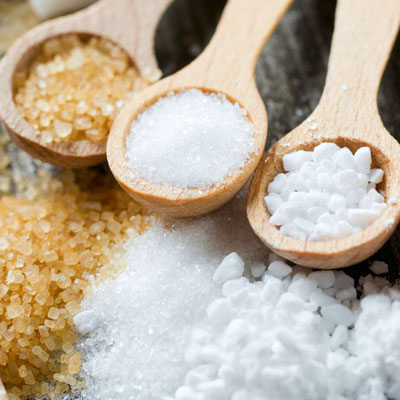
Remember, sugar can hide in food label ingredients. You want to avoid fructose, glucose, corn syrup, and even reduce honey and maple syrup intake. Do not substitute artificial sugar substitutes as they create their own problems. If you need a sweetener, try stevia or monk fruit. You will be surprised at the benefits you will see when you learn how to balance hormones naturally by giving up sugar.
Decrease the intake of sugar and refined carbohydrates to lower insulin levels and improve hormonal balance.
Intermittent Fasting, Weight Loss, and Hormonal Balance

If you are looking for how to balance hormones naturally, losing weight is an excellent method to improve hormone secretion.
Intermittent fasting is one of the best ways to balance hormones naturally after 40. By limiting food consumption to six hours a day (between noon and 6 pm), you force the body to pull energy from fat stores. Do not decrease how much you eat, just limit it to those hours so the body can burn fat the rest of the day.
Intermittent fasting can help you burn fat and lose weight – resulting in hormonal balance.
Protein Consumption and Hormone Balance
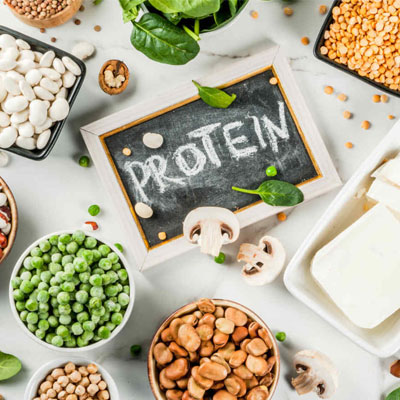
Another benefit of using protein to balance the hormones naturally is that consuming protein helps increase weight loss. Protein improves metabolism and the body’s ability to burn fat.
Drink Green Tea to Balance Hormones

Anyone asking how to balance hormones naturally should consider drinking a glass or tea of green tea each day as it helps improve immunity and weight loss.
Green tea can help reduce insulin resistance to balance hormone levels.
Avoid Overeating to Balance Hormones
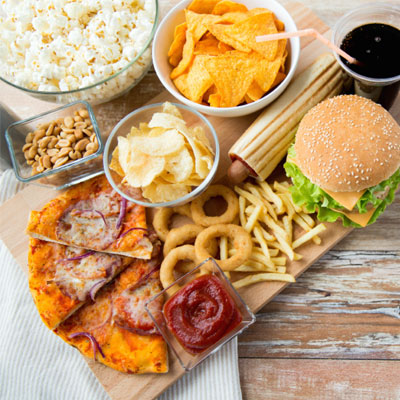
Now, undereating is just as bad, if you do not consume enough calories each day, your body will increase cortisol production to fight the internal stress it feels. We do not need to remind you about high cortisol levels, do we? If so, go back and reread that section. People who eat less than 1,200 calories a day tend to gain weight because their metabolism slows down.
Maintaining a healthy diet is crucial for hormonal balance.
Stop Smoking and Reduce Alcohol for Hormonal Balance
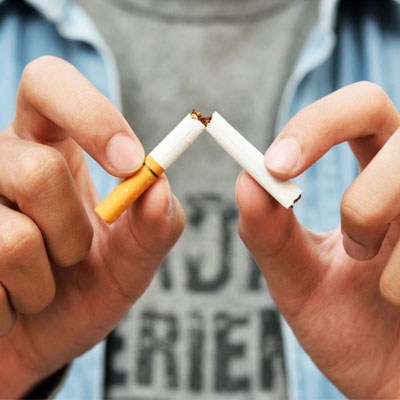
Alcohol consumption is a bit different. A daily glass of red wine has already shown to be heart-protective. However, drinking an entire bottle every night will have the opposite effect. Limiting yourself to no more than one drink a day can help if you are trying to learn how to balance hormones naturally. Since excessive drinking also decreases deep, slow-wave sleep, it reduces the ability for the body to secrete critical hormones at night.
To help balance hormones, quit smoking and reduce alcohol consumption.
Herbs That Help Balance Hormones

Other beneficial herbs for the hormones include holy basil, ginseng, Rhodiola, and saw palmetto. In addition to herbs, essential oils such as clary sage, lavender, rosemary, fennel, thyme, and sandalwood can also help.
By incorporating these ways to balance hormones naturally into your daily life, you should begin to see improvements in your physical, mental, emotional, and physiological functions.
- Matthew M Schubert, Surendran Sabapathy, PhD., Michael Leveritt, PhD., Ben Desbrow, PhD.
- Eve Van Cauter, PhD., Kristen Knutson, PhD., Rachel Leproult, PhD., Karine Spiegel, PhD.
- Rachel Leproult, PhD., Eve Van Cauter, PhD.
- Karen K. Ryan, Randy J. Seeley PhD.
- Julien Benjamin Pujol, Nicolas Christinat, PhD., Yann Ratinaud, PhD., Claudia Savoia, Siobhan E. Mitchell, PhD., El Hadji M Dioum, PhD.
- Kimber L. Stanhope, PhD., RD.
- Philippa D Darbre, PhD.
Acute exercise and hormones related to appetite regulation: a meta-analysis
The Impact of Sleep Deprivation on Hormones and Metabolism
Role of Sleep and Sleep Loss in Hormonal Release and Metabolism
Coordination of GPR40 and Ketogenesis Signaling by Medium Chain Fatty Acids Regulates Beta Cell Function
Sugar consumption, metabolic disease and obesity: The state of the controversy
Overview of air pollution and endocrine disorders



